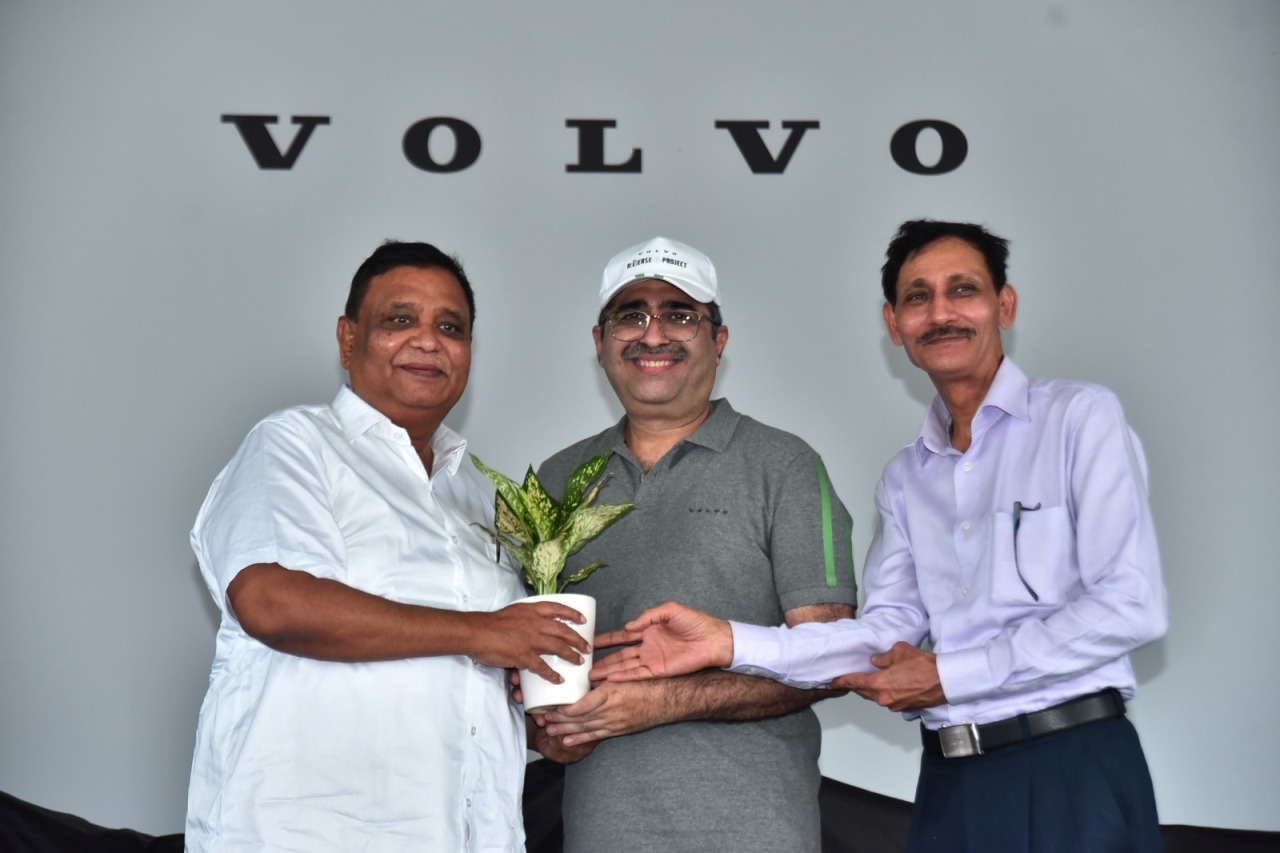
· 10,000 trees planted in association with ASSOCHAM
· Volvo has planted 5 trees for each of its EVs sold and 4 trees for other EV owners who join the Reverse Project.
· Non EV owner can also pledge and join this initiative
As part of its commitment to sustainability, Volvo Car India, joined forces with ASSOCHAM embarking on an ambitious initiative called the Reverse Project that converted the SiddharthVihar,Ghaziabad Dump-Yard area into a thriving urban forest. The Reverse Project is set to have a profound impact on the environment, with Volvo supporting the 10000 tree plantation and takingcare of the urban forest for next 4 years in Siddhartha Vihar-Ghaziabad. The landfill posed a major environmental threat due to garbage and construction waste dumping. It has now been transformed into a lush green-lung that the city truly needs.
Volvo has planted 5 trees for each of its Electric Vehicle (EV) sold to date as well as 4 trees for other EV owners who wish to be associated with the Reverse Project. Once associated with the project, EV owners of other brands can have trees named after them, commensurate to the mileage they have done on their EVs. Additionally, non-EV owners can also pledge and join this initiative. This innovative approach not only underscores Volvo's dedication to sustainability but also signifies a meaningful step towards a greener and healthier future.
Mr.Jyoti Malhotra, Managing Director, Volvo Car India said “The Reverse Project gives car owners all over India an opportunity to contribute towards reversing the environmental damage. Not only will Volvo Car dedicate 5 trees for every Volvo EV bought but will also extend a similar opportunity to other EV owners. Irrespective of where you are in India and what EV you drive, once you register on the Reverse Project site 4 trees at the Urban Forest will be named after you for every 5000 kilometres that you drive. What better way to turn kilometres into trees. For non-EV users once they take a pledge, 3 trees will be named on their behalf”
The Reverse Project initiative aligns with Volvo Car India's broader goal of promoting a sustainable planet and achieving net carbon neutrality by 2040. This commitment extends beyond their cars by transforming Urban Dump yard areainto Urban Forest. Everyone who joins Volvo Car India in their drive to reverse the planet will receive a certificate, recognizing their contribution to this vital environmental effort.
“At Volvo Car India, our mission is to deliver unparalleled safety and sustainability. This commitment drives our Reverse Project efforts, emphasizing that environmental protection is a collective responsibility. We commit ourselves to caring for this urban forest for four years, we even invite others to also participate and get recognition by getting a tree named after themselves.” said Ms.Jyotsana Singh Kaushik Director – Marketing and PR, Volvo Car India.
Mr. Deepak Sood Secretary General, ASSOCHAM & Trustee from ASSOCHAM Foundation for CSR (AFCSR)said “This collaborative effort by Volvo and AFCSR sets a commendable example for the industry. It reflects the transformative impact that can be achieved through collective environmental responsibility. AFCSR stands firmly behind such initiatives, acknowledging the vital role of shaping a sustainable future”.
In addition, Mr.Sood said that Environmental protection and conservation are not just ecological imperatives but also powerful economic strategies. Investing in sustainable practices and preserving natural resources fosters long-term economic growth, creates green jobs, and ensures resilient communities. A commitment to conservation today paves the way for a thriving economy and a healthier planet tomorrow.
This is in line to the thought of our Global project “For Life Fund” with which we aim to have measurable impact in addressing biodiversity and ocean heath complementing our broader climate action, supporting nature directly and indirectly improving people’s lives.
As part of its sustainable mission, Volvo Car India has already installed solar power panels at 4 primary health centres in Uttar Pradesh and Haryana leading to a total of 50 KW of captive solar power. The company also installed solar panels of 10KWp in a bio diversity park in Haryana
